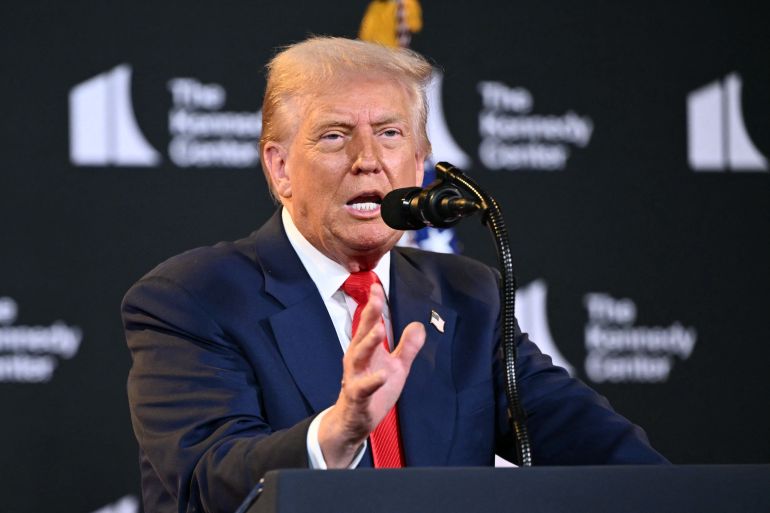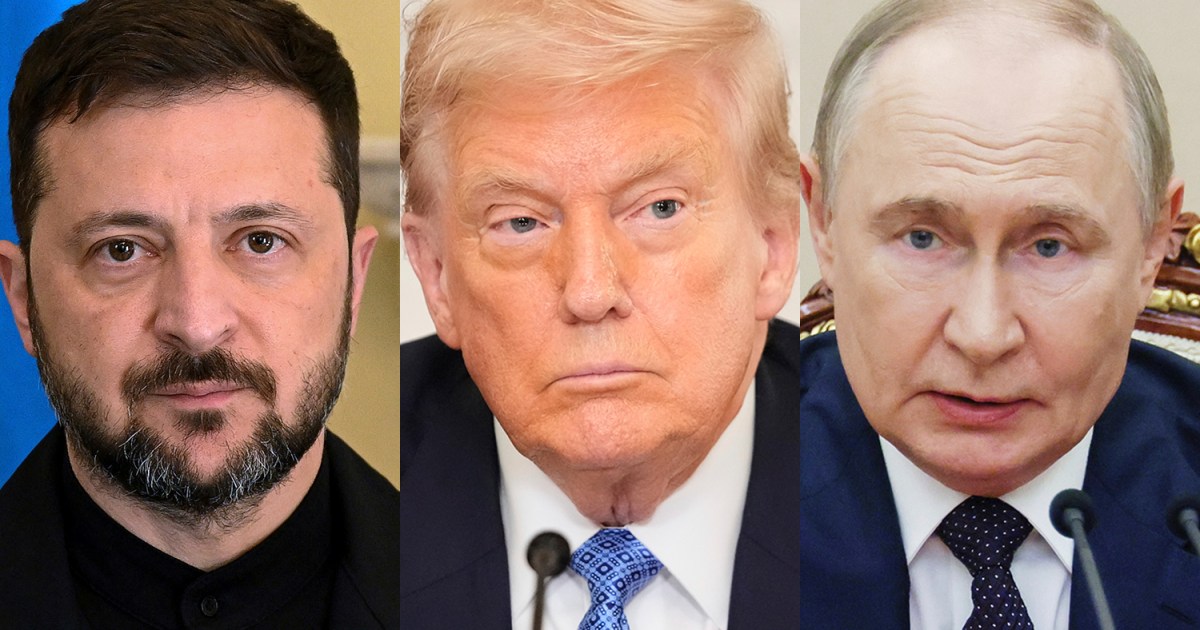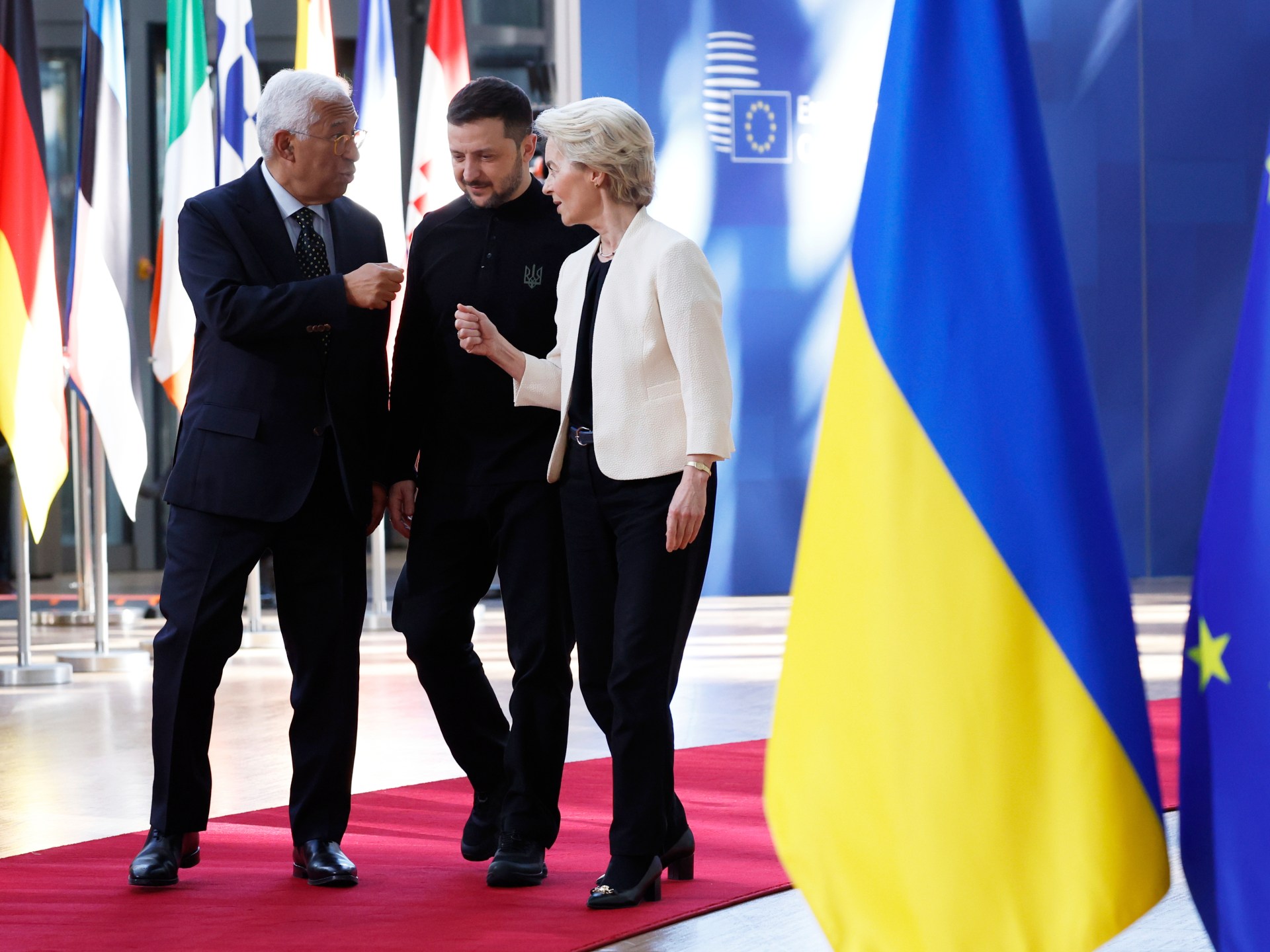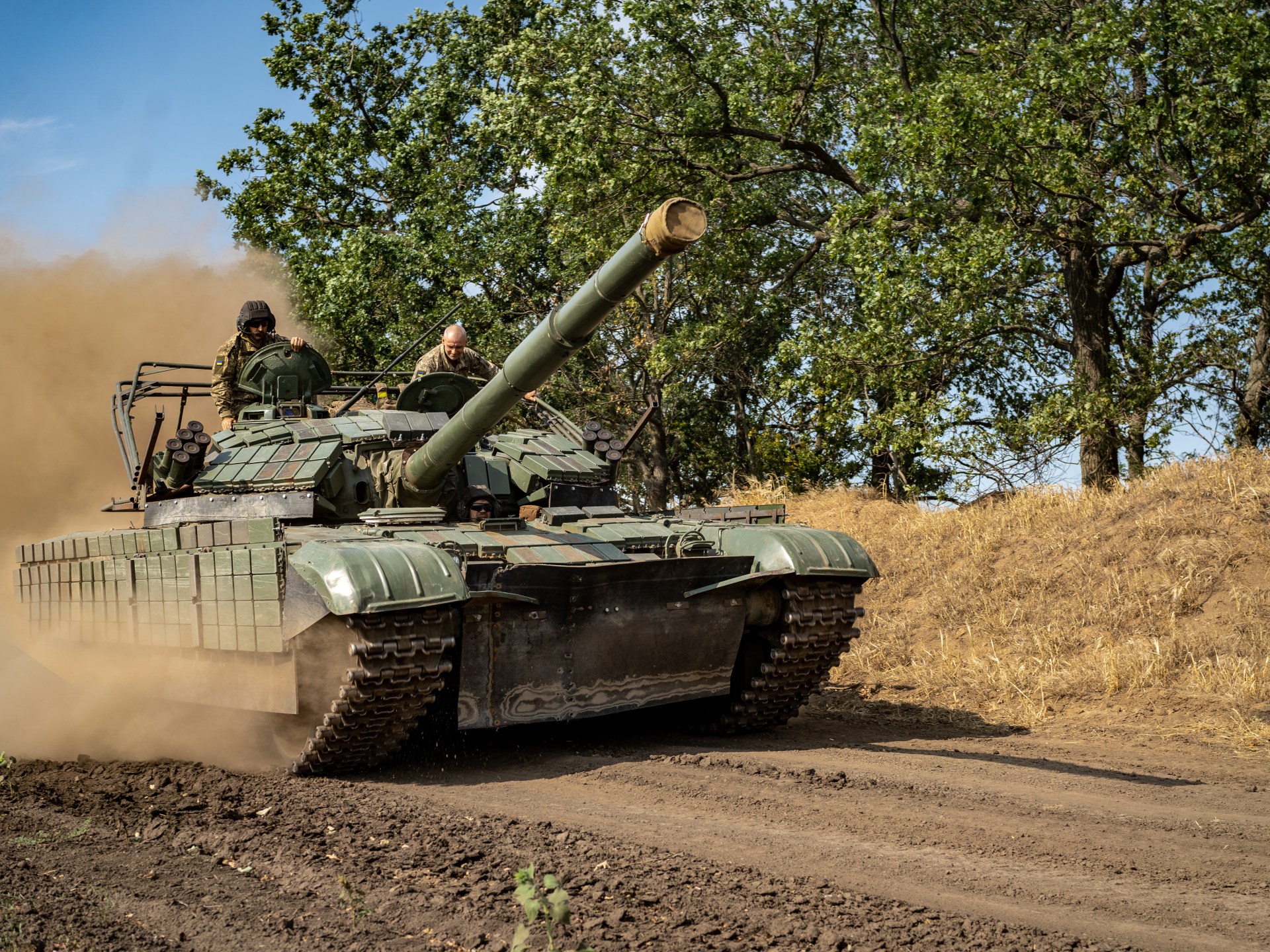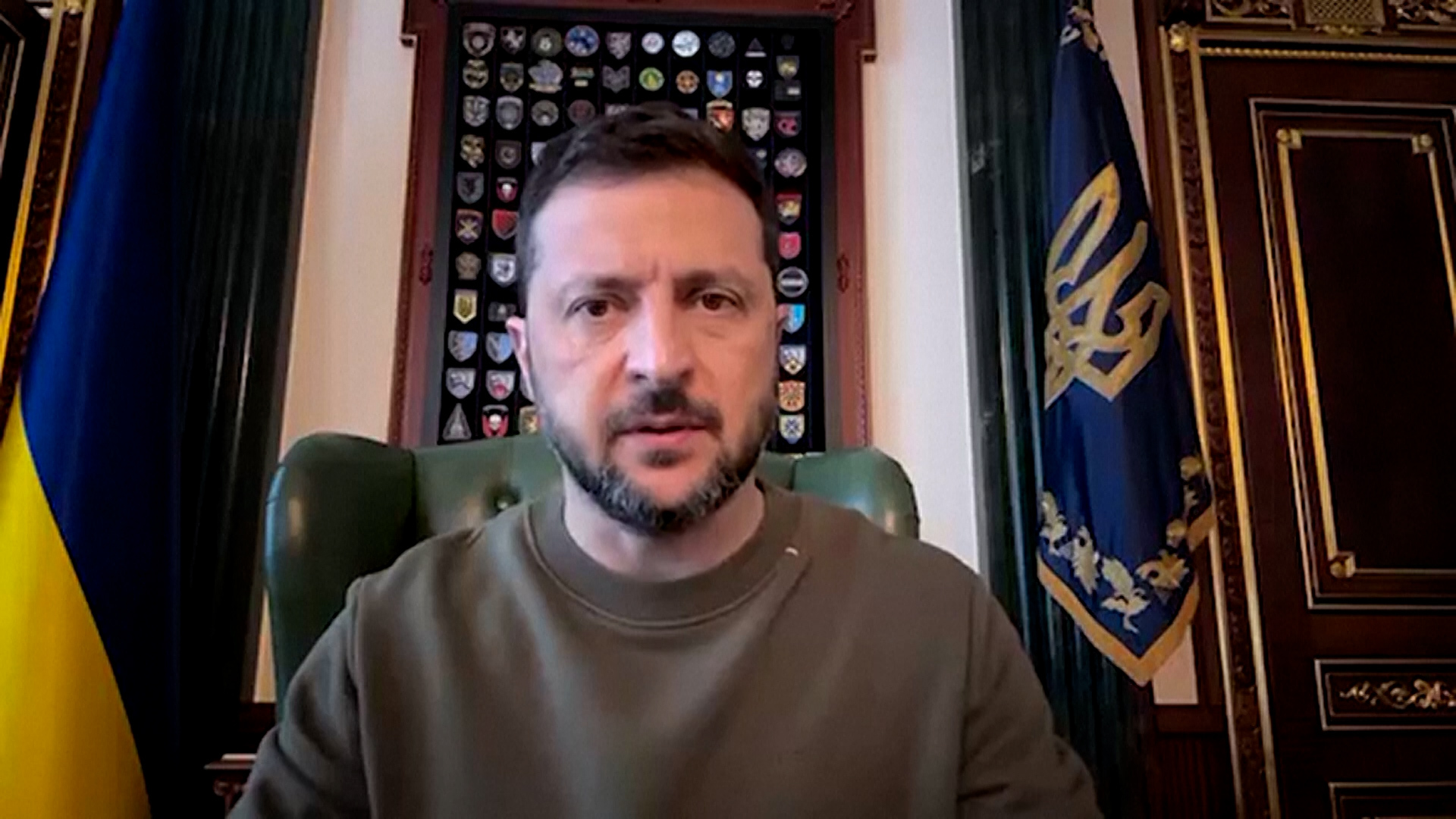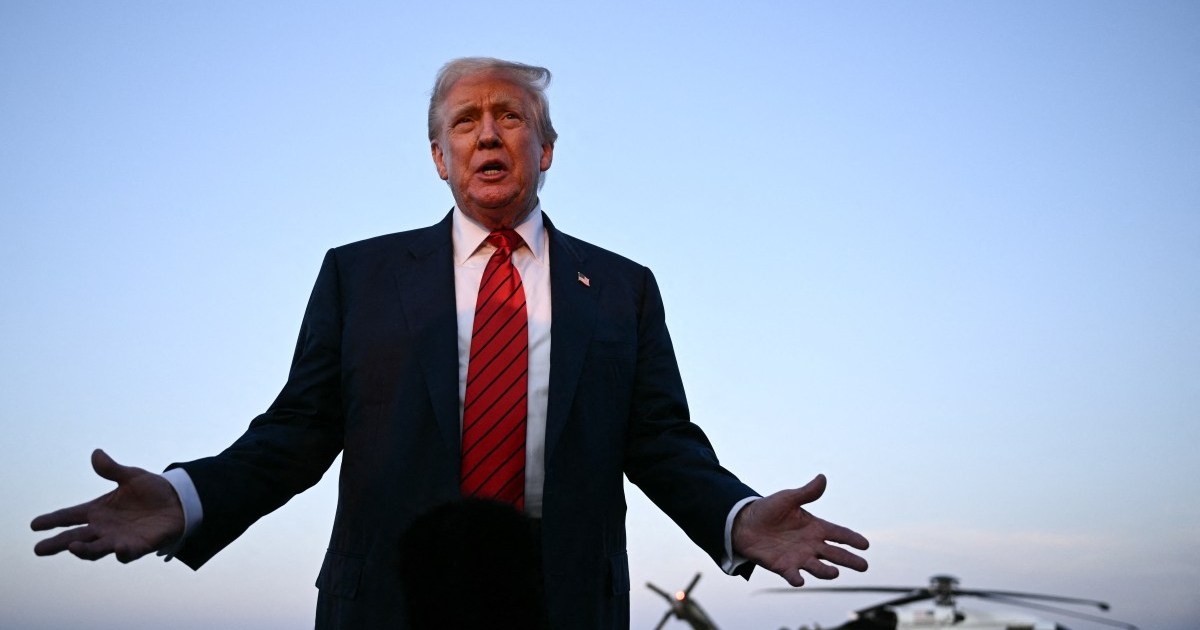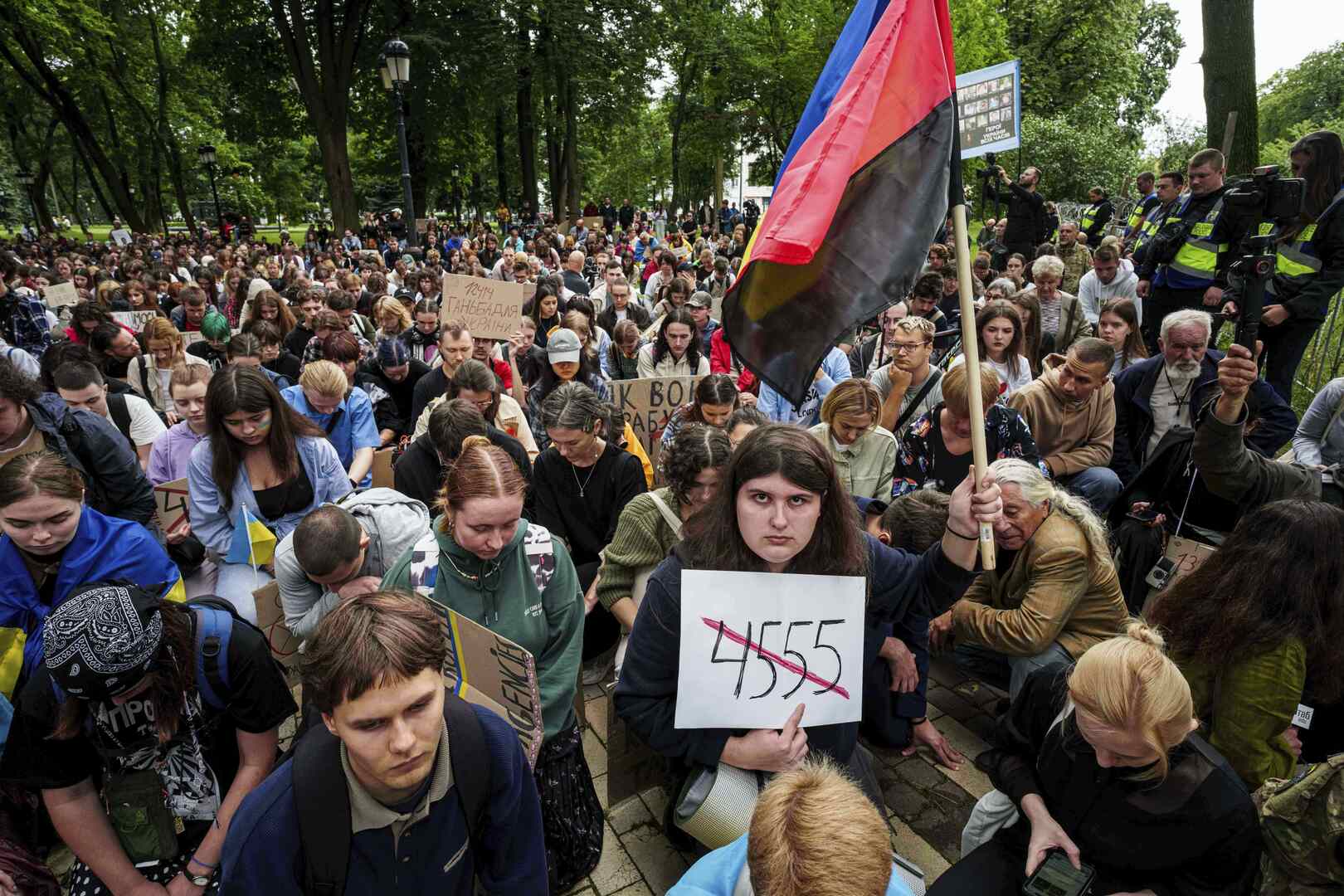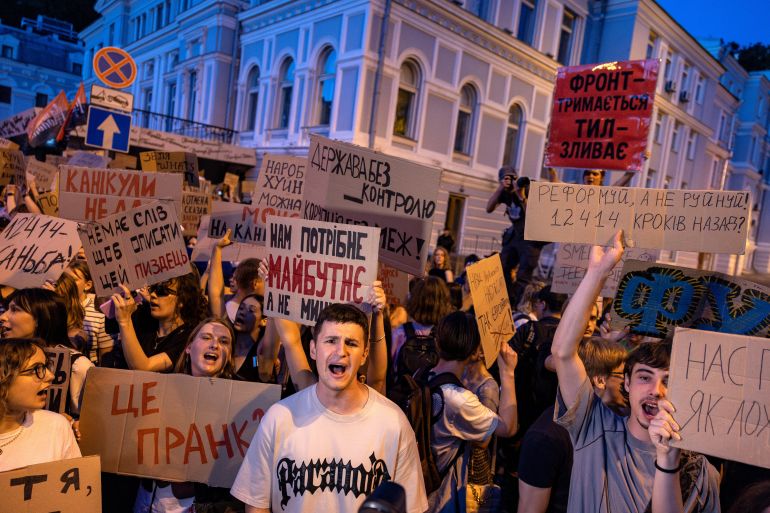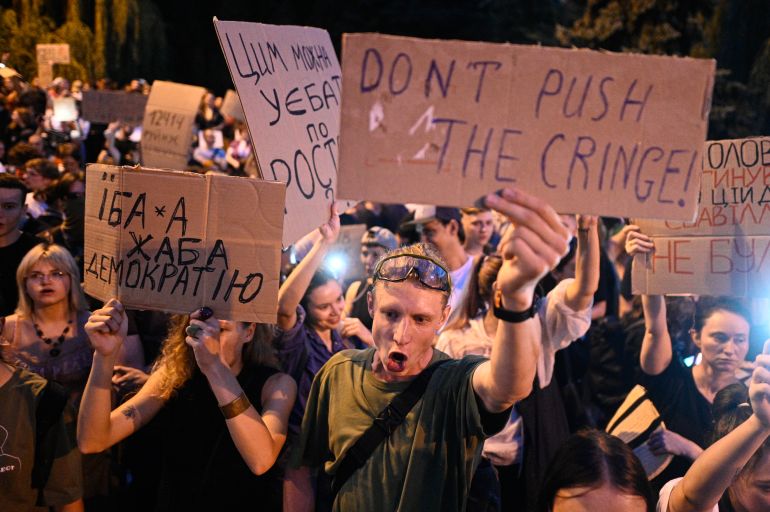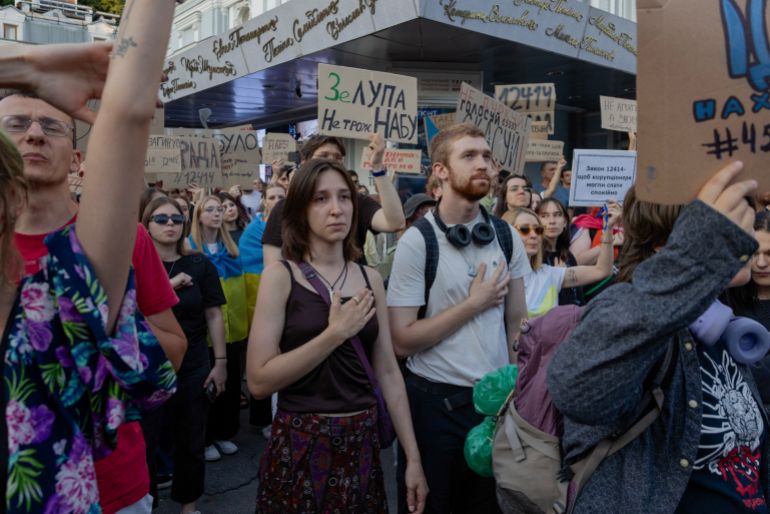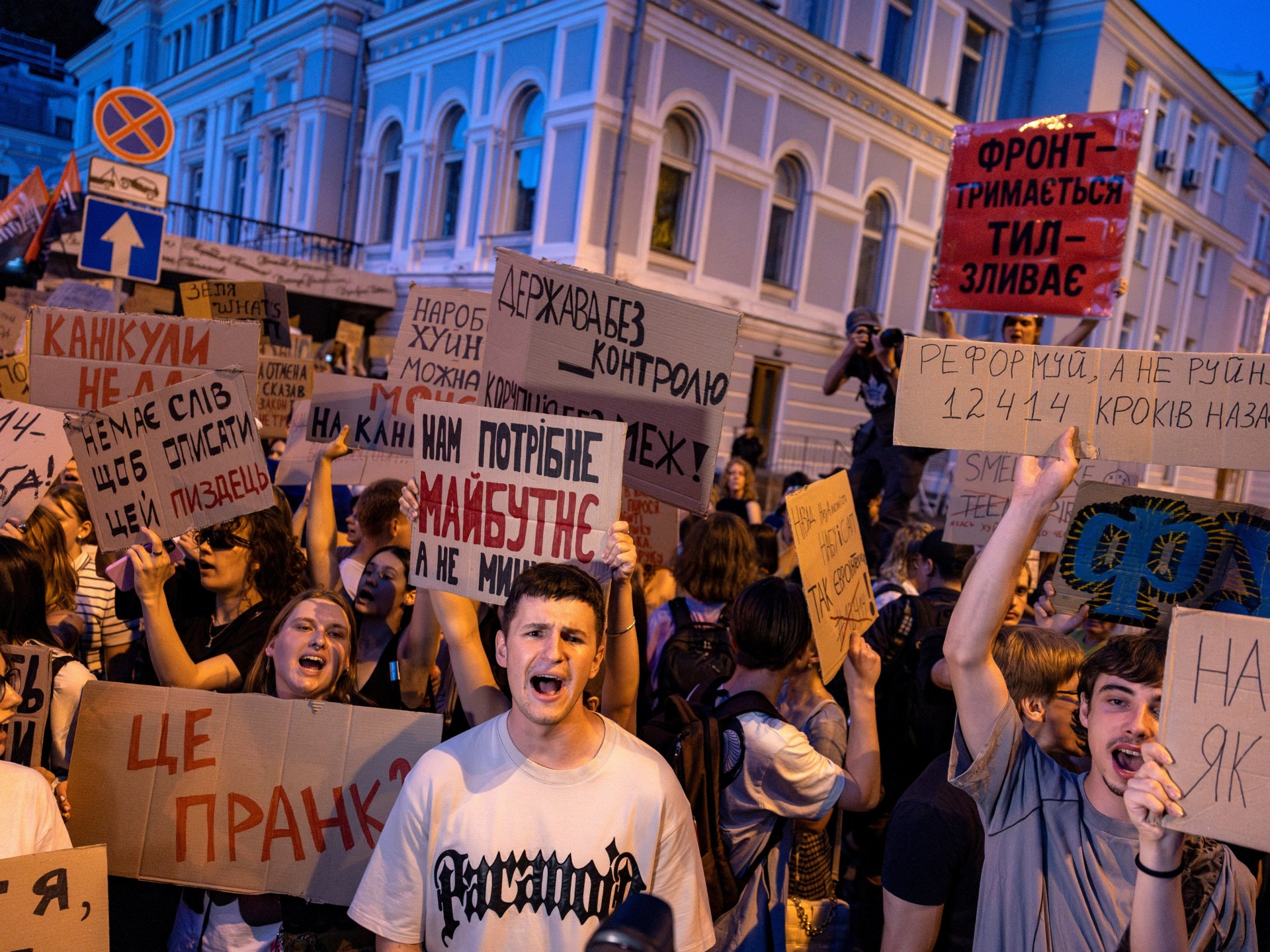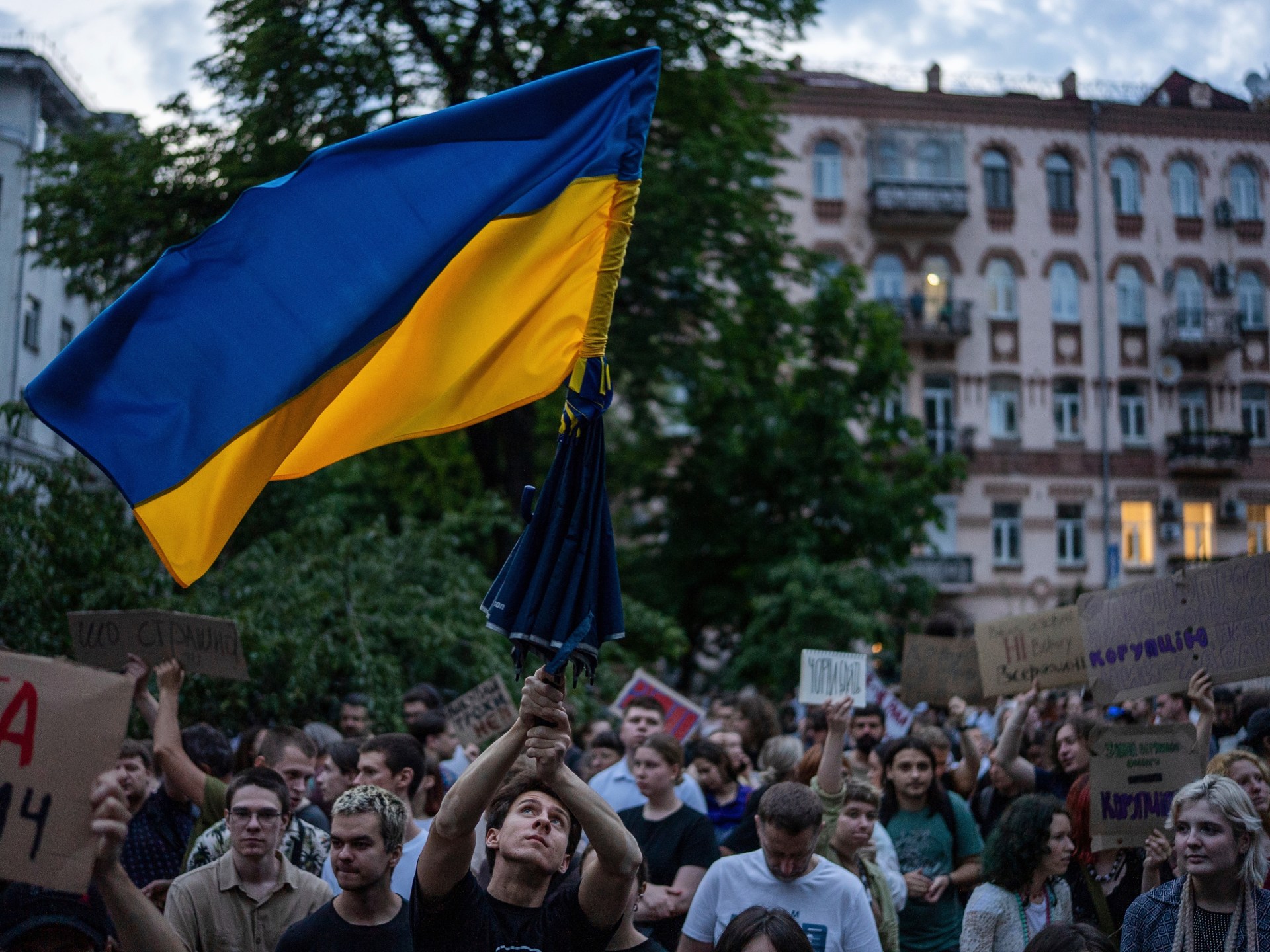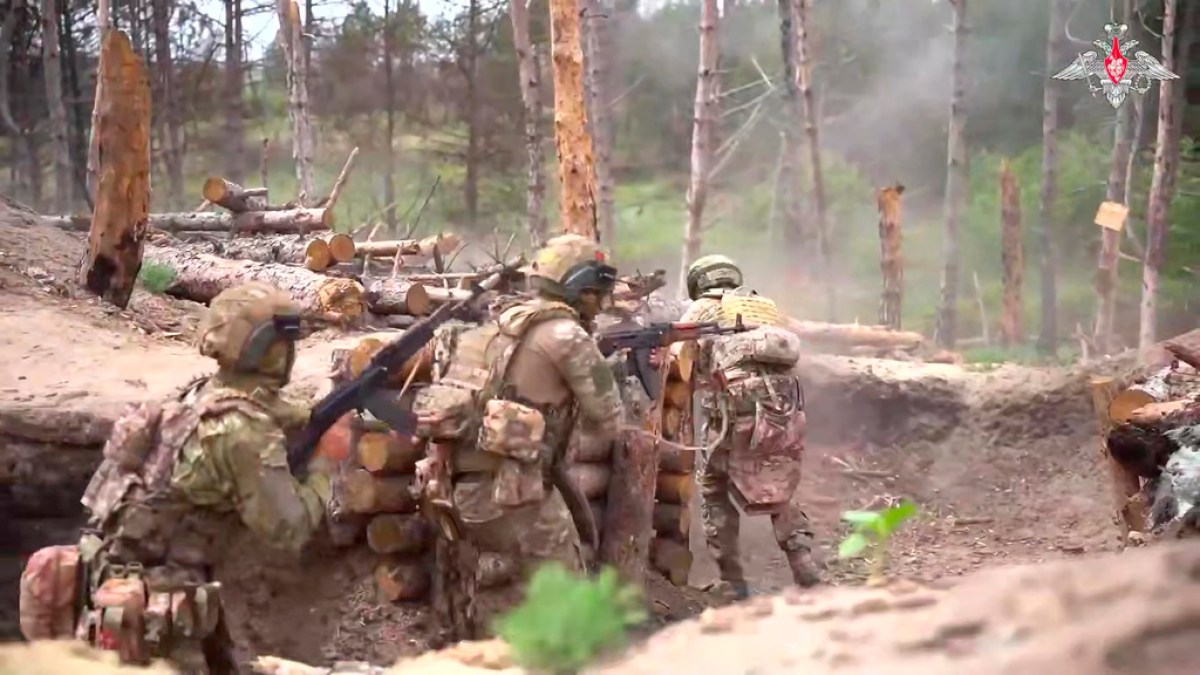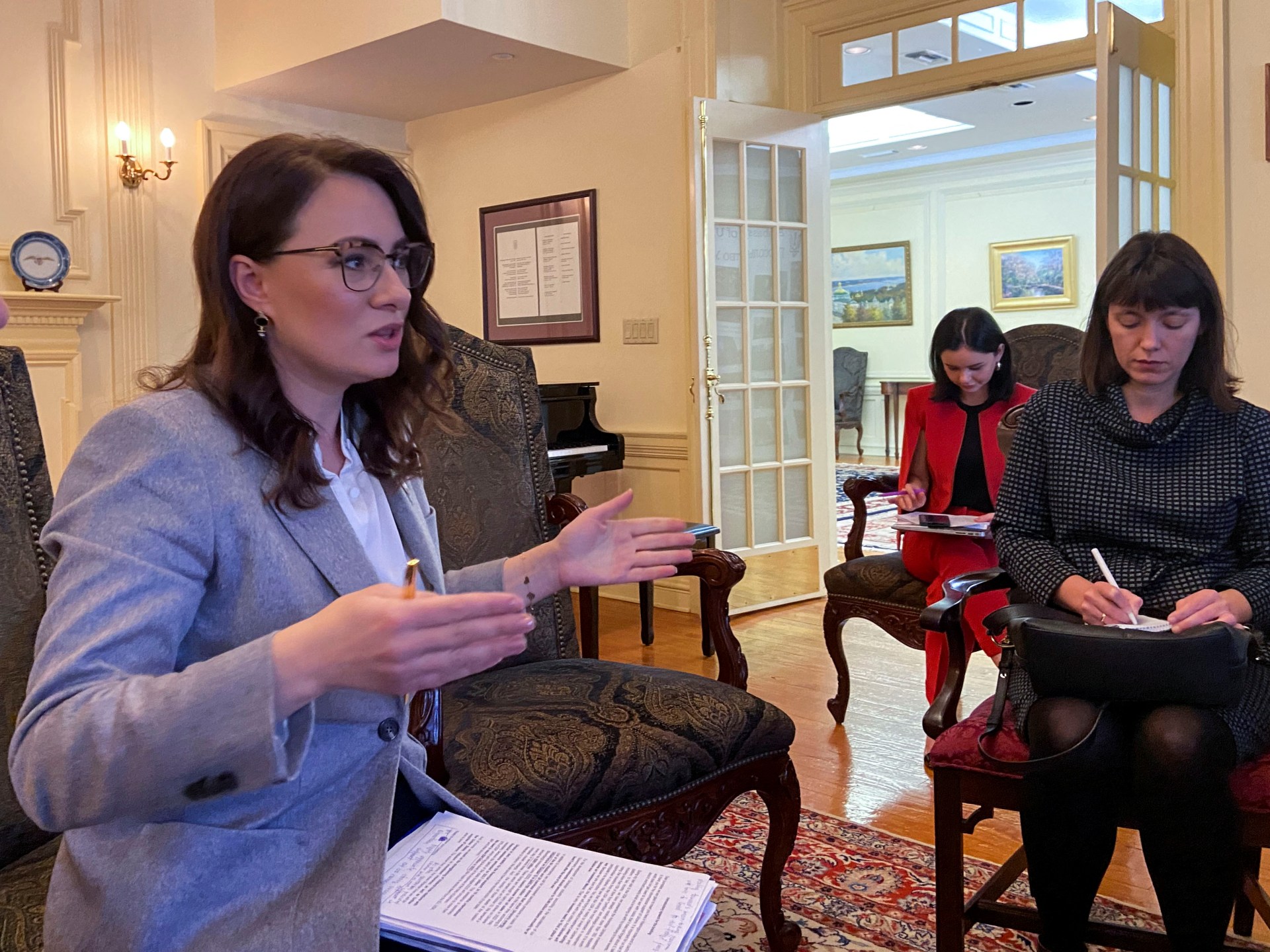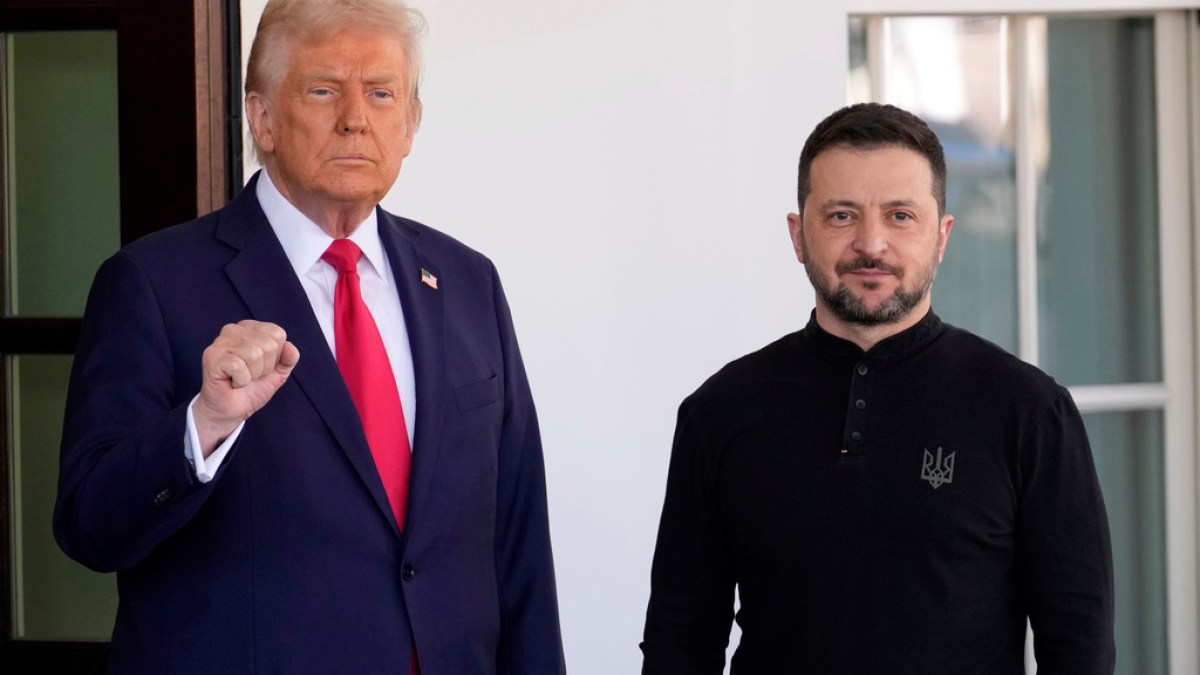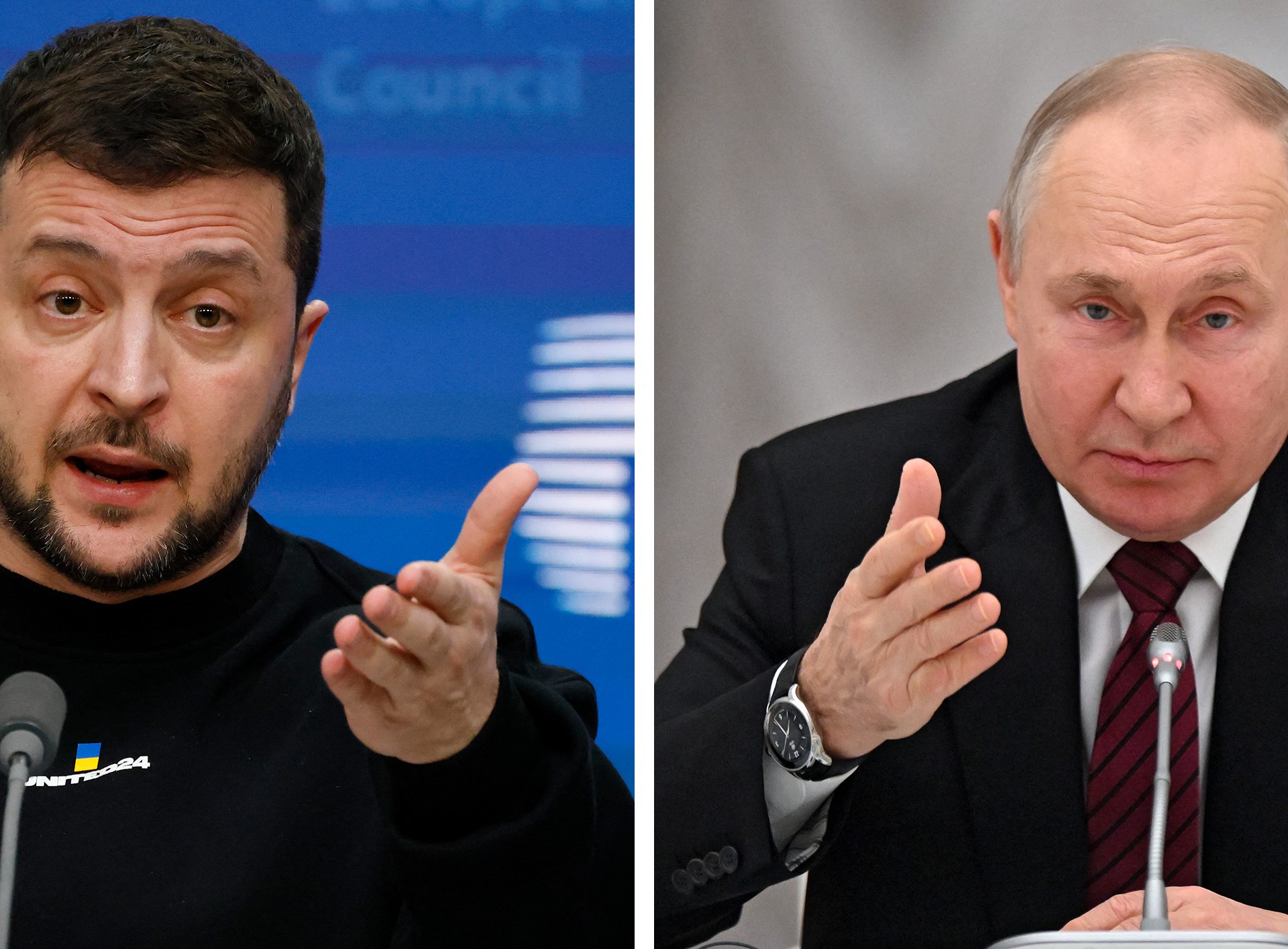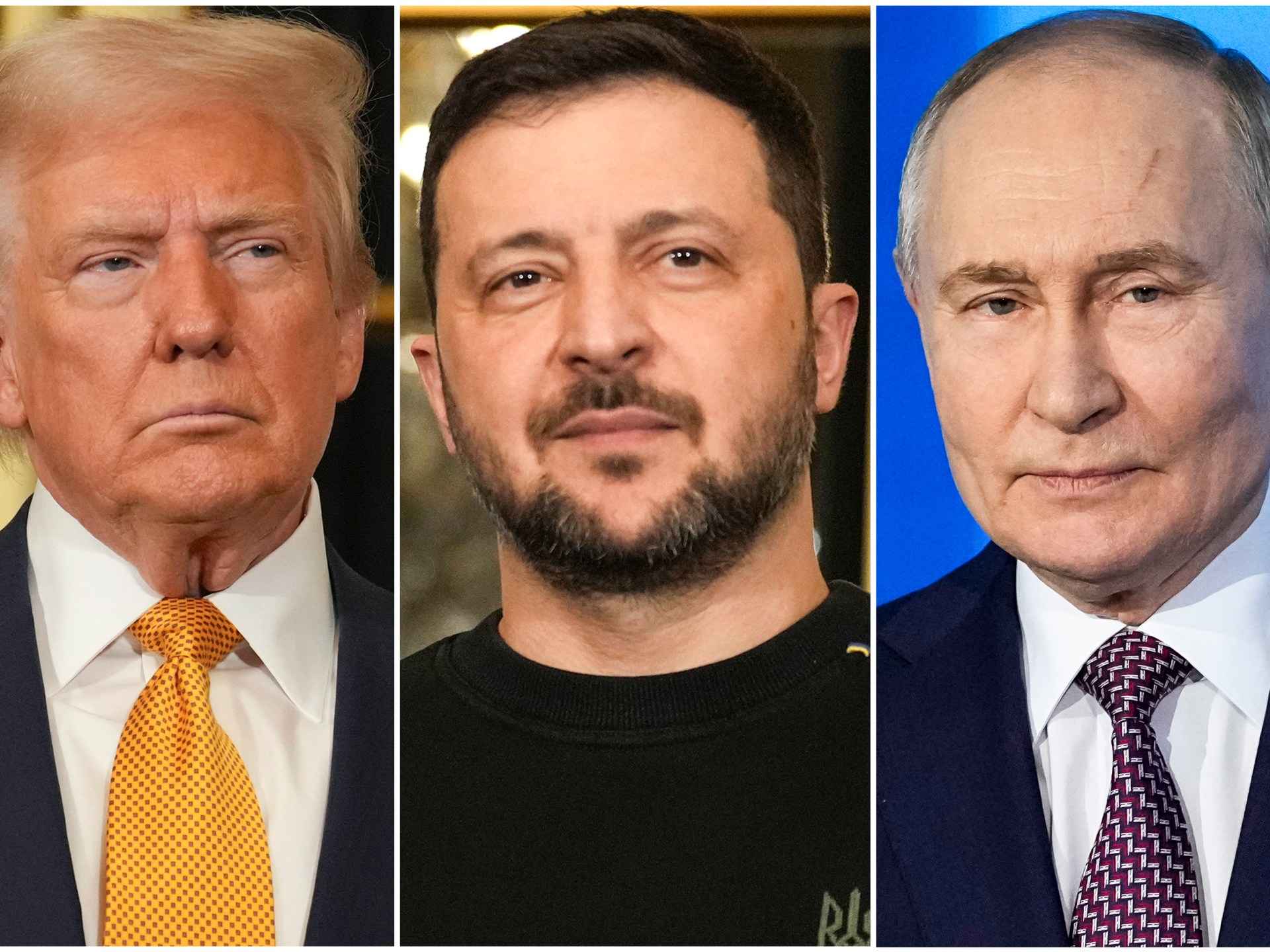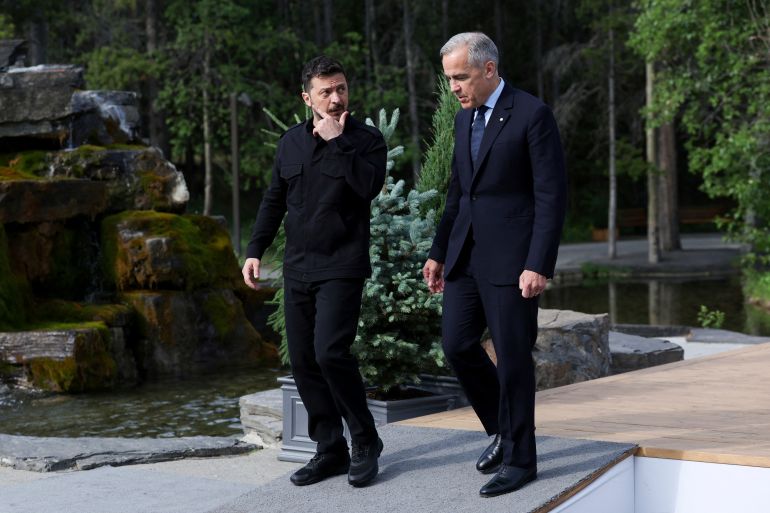Trump touts second trilateral meeting before Putin summit; Zelenskyy pushes | Russia-Ukraine war News
Ukrainian President Volodymyr Zelenskyy has reiterated that there should be no peace talks to end the Russia-Ukraine war now in its fourth year without representation from his country, and also said Russia should face sanctions if it does not agree to an immediate ceasefire, following a virtual meeting between him, United States President Donald Trump and European leaders.
Zelenskyy delivered the message after the call on Wednesday, two days ahead of a summit between Trump and his Russian counterpart Vladimir Putin in Alaska, which comes as part of Washington’s so far failed attempts to end the war in Ukraine.
Meanwhile, Trump promised to hold trilateral talks with both Ukraine and Russia, if Friday’s summit “goes OK”.
“I would like to do it immediately,” he said. “We’ll have a quick second meeting between President Putin and President Zelenskyy and myself if they’d like to have me there.”
The US president also vowed that Moscow would face “severe consequences” if Putin did not agree to end its war.
In a joint statement, leaders of the UK, France and Germany said that Russia should face tougher sanctions if it fails to agree to a ceasefire on Friday.
Kyiv must also be given “robust and credible security guarantees” and have no limitations placed on its armed forces or on its cooperation with other countries, they added.
“The Coalition of the Willing is ready to play an active role, including through plans by those willing to deploy a reassurance force once hostilities have ceased.”
The rapid developments came after Trump met virtually with Zelenskyy and other European leaders including France’s Emmanuel Macron and the United Kingdom’s Keir Starmer on Wednesday.
Arranged in a bid for Europe to try and influence Trump’s meeting with Putin on Friday, this second call took place after talks earlier in the day between Zelenskyy, European leaders and the heads of NATO and the European Union.
Thanking German Chancellor Friedrich Merz for hosting the meetings, Zelenskyy said on X that Ukraine and Europe were “cooperating constructively with the United States”.
“I hope that today we have come closer to ending the war and building a guaranteed peaceful future,” he concluded.
Trump and European leaders called their joint meeting a success, with the US president describing it as a “very good call”.
“I would rate it a 10. Very friendly,” he said, speaking during a press conference at the Kennedy Center.
Trump noted that he would be calling Zelenskyy and European leaders immediately following his meeting with Putin.
At a press conference with Merz, Zelenskyy expressed his hope that the Trump-Putin summit would focus on an “immediate ceasefire”.
“Sanctions must be in place and must be strengthened if Russia does not agree to a ceasefire,” he added.
As the Russian army continues to make sizable territorial gains in the east Ukrainian province of Donetsk, Zelenskyy told the US president and his European colleagues that Putin was “bluffing” about pursuing peace.
His choice of words, a term commonly used in reference to poker, evoked Trump telling Zelenskyy, “you don’t have the cards” in the infamously hostile news conference at the White House on February 28th.
“He is trying to apply pressure before the meeting in Alaska along all parts of the Ukrainian front,” Zelenskyy suggested. “Russia is trying to show that it can occupy all of Ukraine.”
After the Trump call, Merz, who described the meeting as “exceptionally constructive”, stressed that Ukraine is willing to negotiate, but noted that “legal recognition of Russian occupation is not up for debate”.
![US President Donald Trump speaks during the unveiling of the Kennedy Center Honors nominees on August 13, 2025, at the Kennedy Center in Washington, DC [Mandel Ngan/ AFP]](https://www.aljazeera.com/wp-content/uploads/2025/08/afp_689cc06e83dc-1755103342.jpg?w=770&resize=770%2C513&quality=80)
“The principle that borders cannot be changed by force must continue to apply,” Merz said.
“Negotiations must include robust security guarantees for Kyiv,” he added. “The Ukrainian armed forces must be able and remain able to effectively defend the sovereignty of their country. They must also be able to count on Western aid in the long term.”
After the online meeting, France’s Macron said Trump would be seeking a ceasefire in Ukraine during his meeting with Putin on Friday.
The US president would also seek a trilateral meeting with Putin and Zelenskyy in the future, the French president noted.
The Trump-Putin summit in Alaska has been a cause for anxiety in Kyiv and Europe more widely, after Trump declared that both Ukraine and Russia would have to swap land if a truce is to be reached.
Speaking from the UK on Wednesday, JD Vance, the US vice-president, seemed to try to allay fears in Europe.
“I just talked to him [Trump] right before I came on the stage, and he said very simply that we are going to make it our mission as an administration to bring peace to Europe once again,” Vance said.
Reporting from Berlin, Al Jazeera’s Step Vaessen said there was “some optimism” in Europe that Trump had agreed to Wednesday’s meeting.
However, Vaessen noted that European leaders were still “concerned that everything changes as soon as President Trump is in that room with President Putin, who they know is a very keen, a very sharp negotiator”.
Elsewhere, the Russian Foreign Ministry sought to downplay the relevance of Europe’s last-minute diplomatic efforts with Trump, branding them “practically insignificant”.
On the battlefield, Russia has claimed to have captured the villages of Suvorovo and Nikanorovka as its gains in Donetsk continue, with the Ukrainian authorities issuing evacuation orders for around a dozen settlements.
The Kremlin’s forces achieved their largest 24-hour advance in more than a year on Tuesday, according to data from the US-based Institute for the Study of War.
